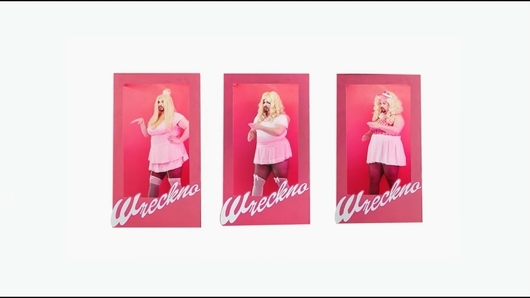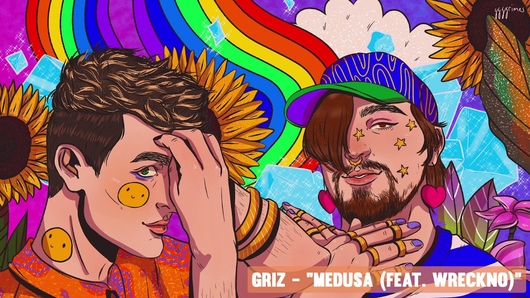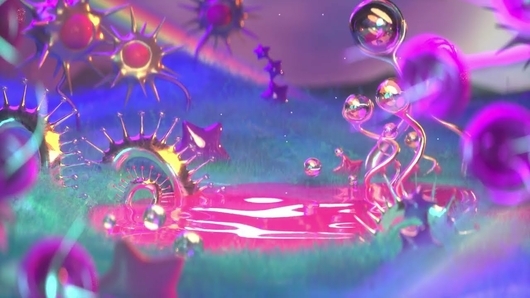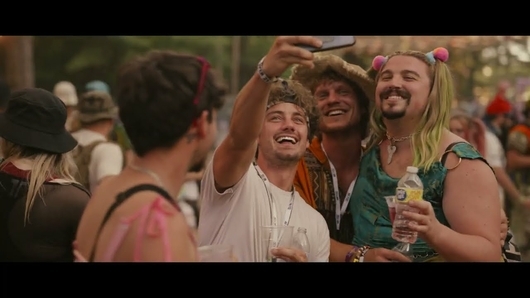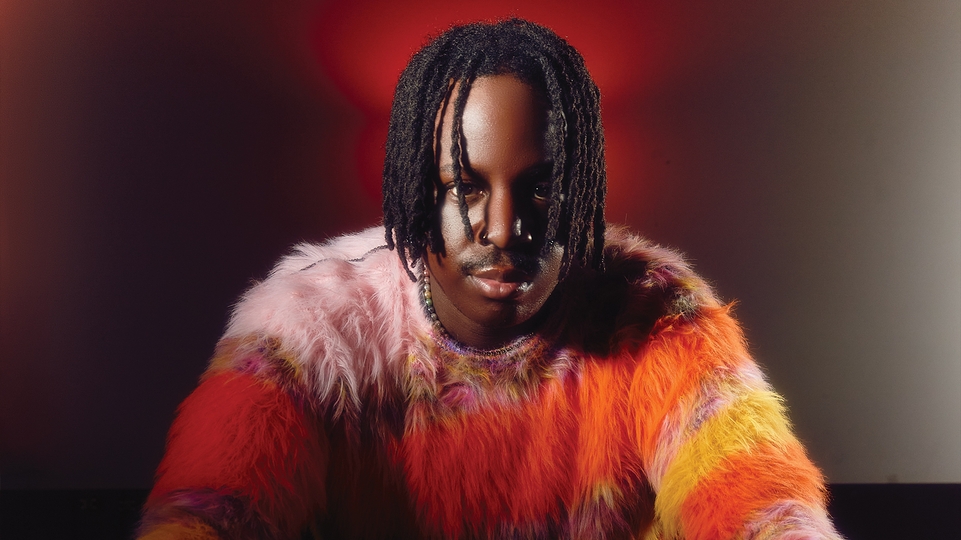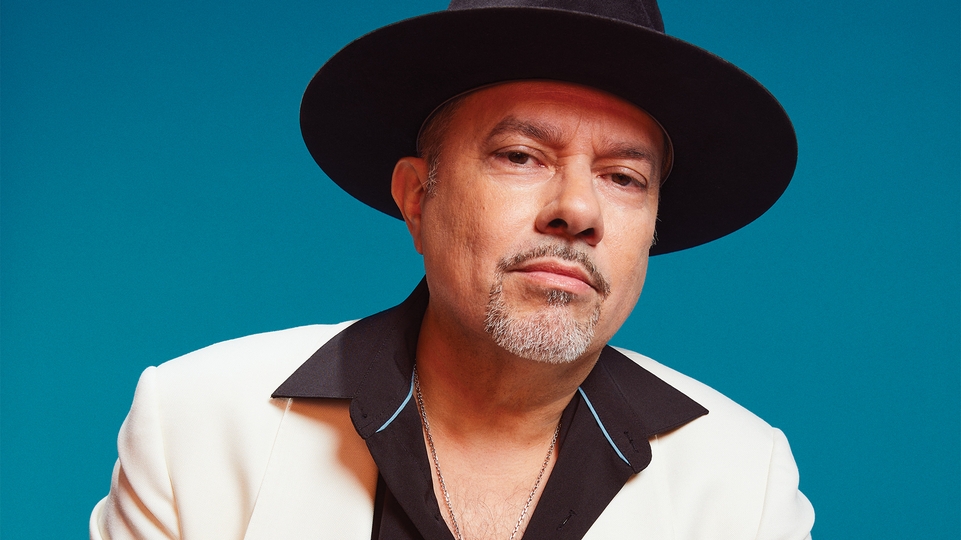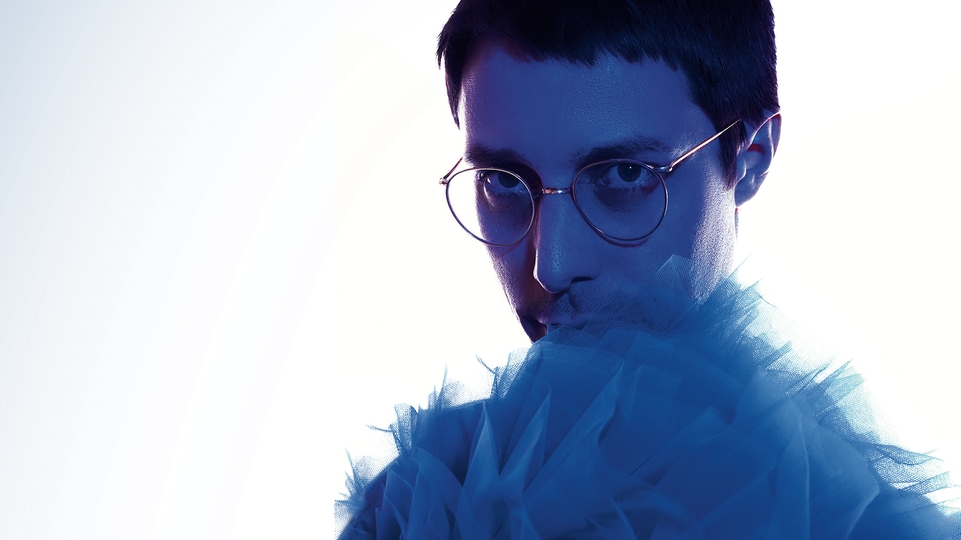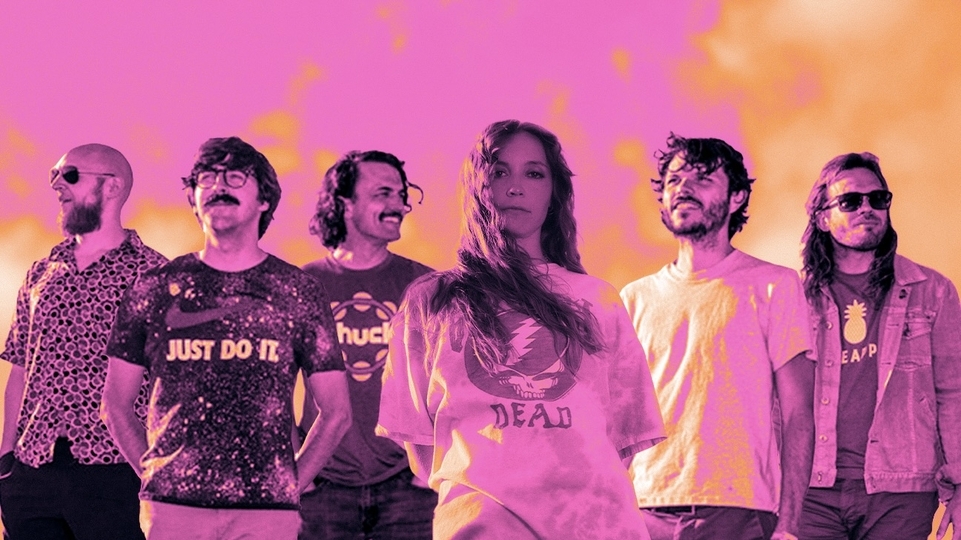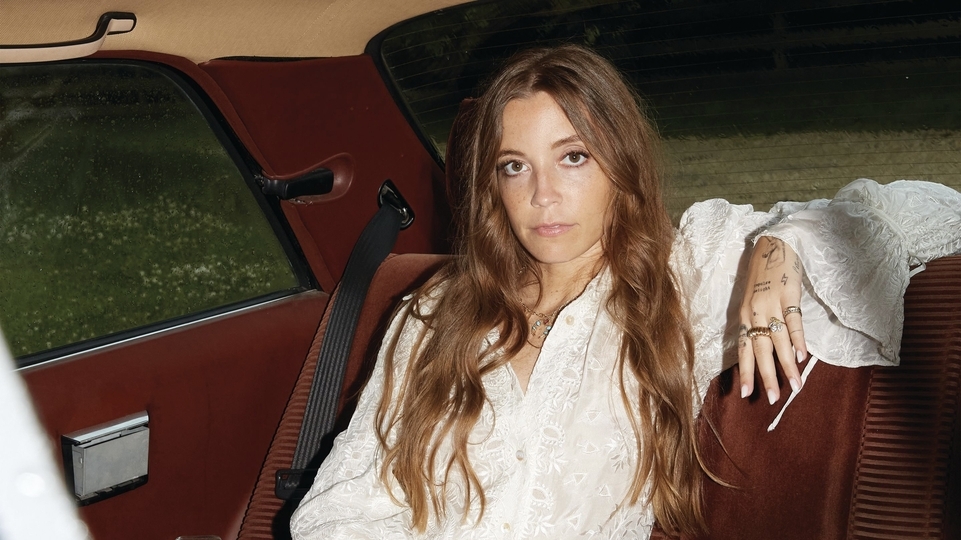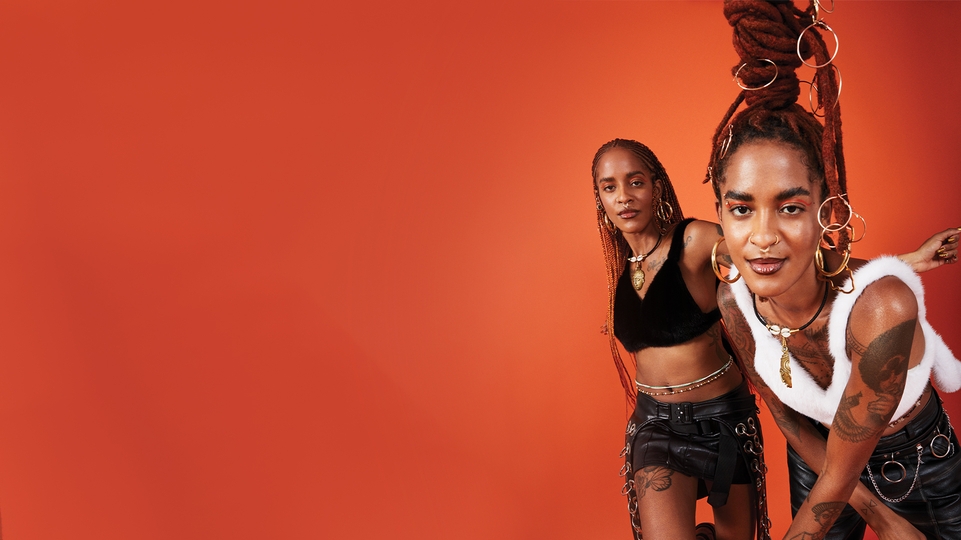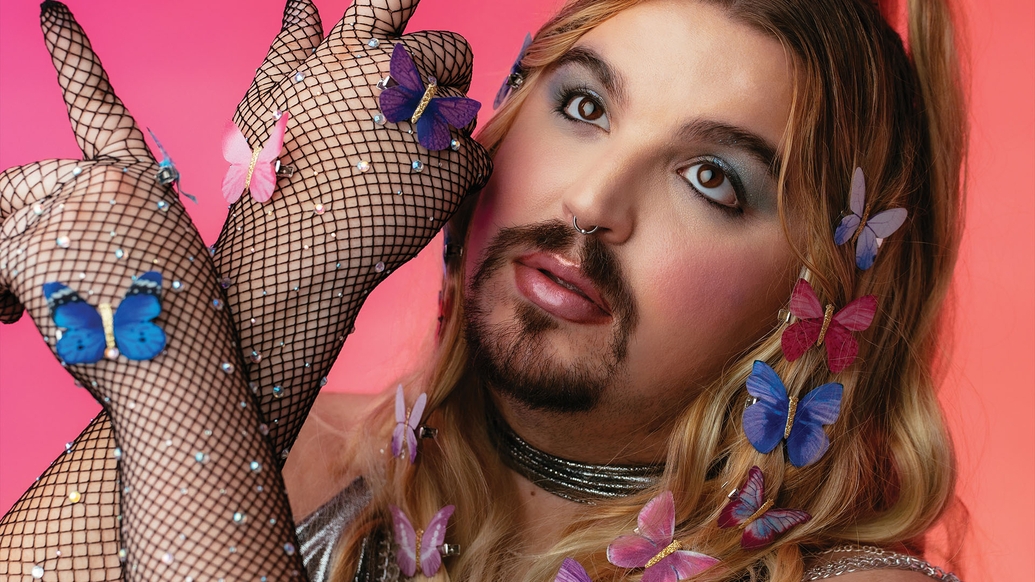
Wreckno: living their fantasy
Brandon Wisniski has refused to let anyone stifle their “batshit crazy dream” of becoming a pop culture icon. Now, as Megan Venzin discovers, the queer rapper and producer known as Wreckno is breaking boundaries and fostering inclusive spaces so others like them can reach the stars
What can’t Barbie do? Since hitting shelves in 1959, the polymer-based, pop culture icon has donned the uniforms of a pilot, astronaut, presidential candidate, and surgeon — each look signifying a different position she’s slayed in heels, immortalized on her infinitely expanding resume.
That adaptability resonated with Brandon Wisniski. And, for the genderfluid bass producer and rapper known as Wreckno, the 11.5-inch heroine also represented something else. “The first thing that ever created, I wouldn’t say trauma, but rather a source of anxiousness among the men in my family as I was growing up, was that I was obsessed with Barbies,” he tells DJ Mag on a video call from the living room of his Detroit home, which he shares with his partner Arlee and their two cats. “I’m sure a lot of gay men can relate to the memory of loving Barbies, but also being surrounded by men telling them, ‘Hey, we need to toughen you up!’”
A full-circle moment is unfolding for Wisniski, who’s had a few days to remove the false eyelashes and drop out of character. Clean-faced and smiling, his long hair is pulled back in a messy bun and he’s sporting a simple T-shirt that suggests that even the fly girls need a hot minute to recalibrate in comfort. It’s a decidedly different fit from the glammed out costumes he donned on set for the shoot of his outlandish new ‘EZ’ music video, wherein he assumes the role of the aforementioned renaissance woman with pure panache (and in sky-high heels, because, of course.)
Four Loko Records dropped the spicy anthem on September 23rd, and it kicks off a little something like this: “Hey, I make it look EZ. I’m taking off, you can’t see me. I like to get a lil freaky. I like my style a little freaky. Tickity-Tok, I make the clock go fast. Rickety-rock, I make the girls throw ass...”
The wordsmith drops bombs with signature sass over a slow-build of bold keys that gives way to fat, low-end bass, produced by fellow queer artist and longtime collaborator, GRiZ. “Ass up, titties right, we gon’ get some dick tonight!”
It’s a saucy declaration to mark the beginning of Wreckno Barbie’s jam-packed day. As per usual, mama finds time to cruise around Malibu. But she also dishes out fast food and runs a nurse shift, before tearing down the house in true pop star fashion, the last guise matching closest with our cover artist’s real-life ambitions. She really can do it all, and so can the subject on our computer screen, it seems.
But before they became Wreckno Barbie — or even, Wreckno, for that matter — Wisniski was a high-school dropout adrift in rural crowds that didn’t quite understand them, nevertheless propelled by a dream and a feverish drive that never let up.
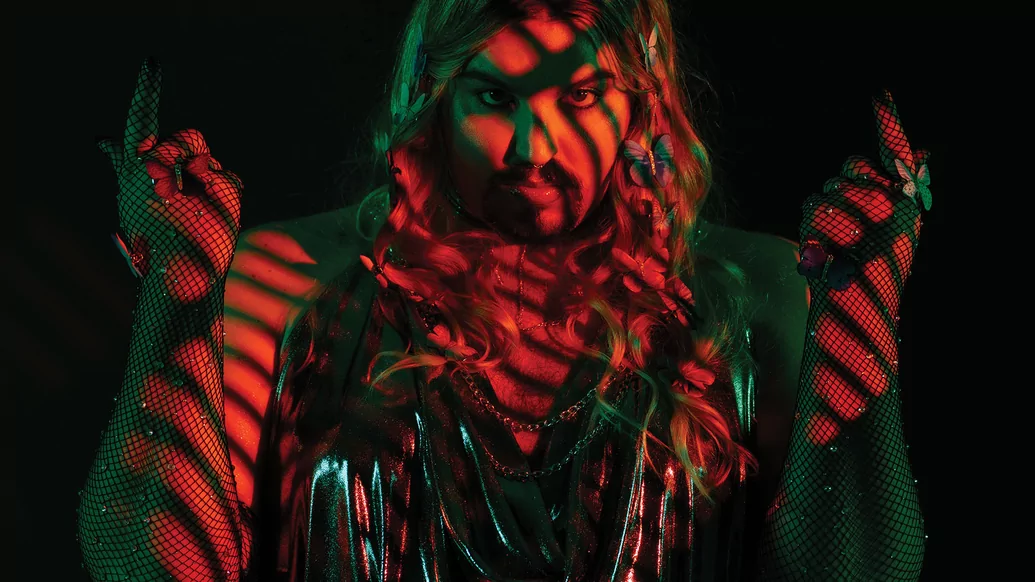
Wisniski is from Manistee, Michigan, a town four hours north of Detroit with a population of about 6,000 people. As many queer people coming of age in middle America will attest, life there was, contrary to the title of Wreckno’s rap-rattled single, anything but “EZ”. A supportive family and a brother who Wisniski refers to as his “best friend in the entire world” made it manageable. When he still felt out of place, he turned to the strong female characters on television as an outlet for exploring his passions and gender identity. OG Barbie set the tone early on, but he was later fascinated by Charlie’s Angels, the ass-kicking women wrestlers of WWE, and the hypersexualized MTV chanteuses who so effortlessly embodied the fierce attitude that Wreckno harbored deep inside.
“My first love of music was definitely Britney Spears, so that checks out,” they say with a knowing laugh. “Obviously, I wasn’t alive when Madonna was at her peak, and I didn’t know that kind of performance art in pop music until I saw Lady Gaga.”
Naturally, Wisniski points to the latter’s iconic performance at the 2011 MuchMusic Video Awards as a light bulb moment. “I was doing all the choreo in my dad’s basement, singing along, and then I just realized, ‘This is what I want to do.’ Obviously I can’t be a Lady Gaga impersonator. I mean, I could,” he recalls of his tweenage revelation. “But I knew I wanted to do a form of this, and I think those early pop divas definitely shaped to this day what I want to see in music and what I find entrancing.”
The superfan found bliss behind closed doors when he belted out the lyrics of ‘Born This Way’ as though they were written just for him. Eventually, high school talent shows became, if only for a few minutes, a place to tap into that same raw energy outside of audible sneer-range.
Nowadays, Wreckno uses all pronouns, but identifies closest with he and they, and prefers not to be aligned with a single group. “You can call me he/she/they, as long as you call me,” he tells his followers often. Back then, however, it was complicated to communicate their place on the spectrum, as it would still be years before pronouns became a common inclusion in workplace signatures and social media bios. “I believe that my gender fluidity has been there since I was a little kid, but I really shut it down because I was in such a small town and it was just going to make my life harder,” Wisniski shares, revealing that in order to protect himself, he had to bury his feelings.
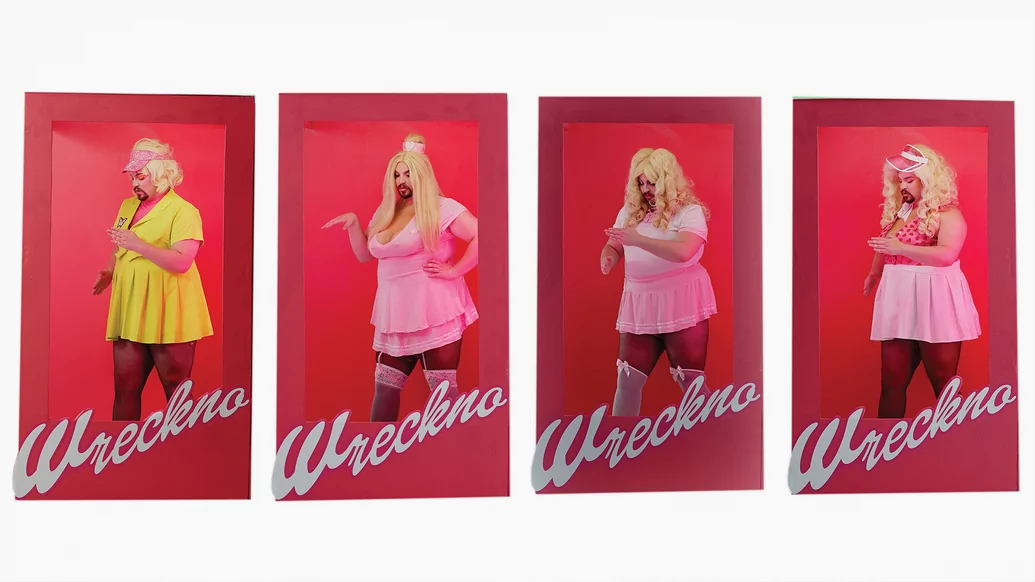
Days were tough enough already. Classmates were cruel, their lack of acceptance made evident in crudely-written notes with taunts like “YOU’RE GAY!” slipped unknowingly into Wisniski’s sweatshirt hood, only to be found hours later. “I laugh about it now because that’s so stupid. But at the time, I was still coming to terms with being queer and there was a part of me that knew going to school was harder than staying home and focusing on music.”
By age 15, he and his older brother Dakota Wisniski (who goes by the moniker 7UDO and remains integral to the Wreckno project) were laying down tracks together in their free time. Dakota used FL Studio — the same DAW that the siblings operate in currently — to build beats and loud, party-rocking synth lines. Wreckno took charge of the lyrics and vocals.
“There were songs like ‘Beaches, Babes And Beats’ that we made, and they’re gone forever, but they were essentially that era of pop music [I associate with] DEV and The Cataracs,” he shares, referencing the pumped-up West Coast act whose rise aligned with that of the North American EDM boom. “We were so inspired by that electropop sound.” When the laptop screens dimmed at night, shit got real again. Threats of “truancy” came often from school officials, but Wisniski trudged along, attending class at a bare minimum with faith that better times were on the horizon.
“I couldn’t even believe I got through the eighth grade,” he admits. By sophomore year, they’d found a core group of trusted friends, but even the queer men in their midst weren’t exactly hip to Wisniski’s feminine qualities, that were sometimes a bit too bold to hide.
“I had a come-to-Jesus moment my junior year where I was like, ‘I’m gonna get it all together, y’all! I’m going to graduate next year!’” But that momentum stalled out after he moved to his father’s house in Indiana only to learn he’d have to repeat his freshman and sophomore coursework to comply with state requirements. “I was like, ‘Fuck this shit. I’m not going to get bullied in the cornfields by ninth graders,’” Wisniski exclaims, throwing his arms up in defeat. He finally dropped out, and dropped into a complex and formative chapter of self-discovery.
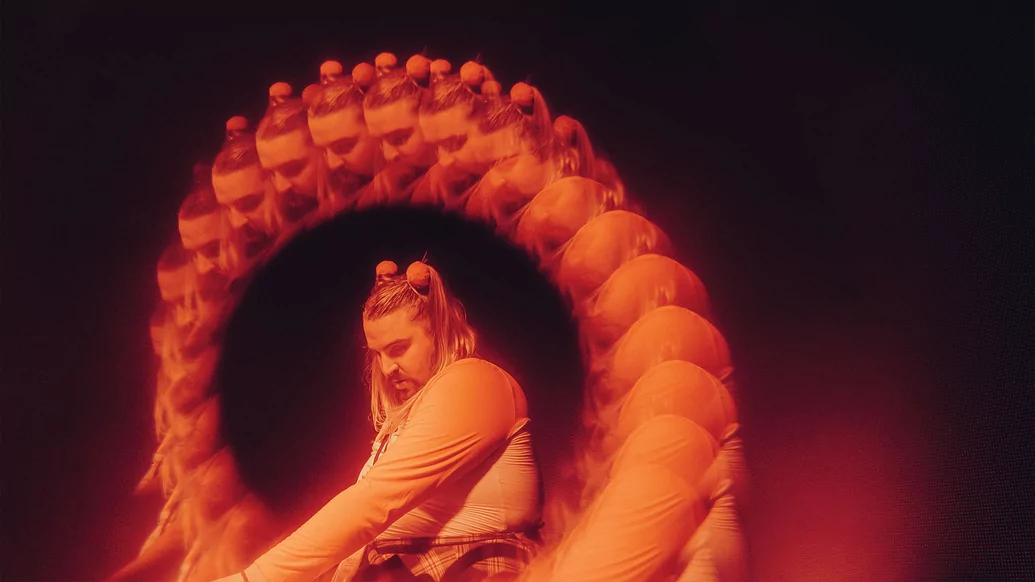
"When it comes to sassiness and the bad bitch energy I like to portray, I think rapping really gets that point across a little bit easier."
“There was a long period of time where I didn’t feel like a complete person because I wasn’t inclined to finish high school and push through things,” Wisniski elaborates on their mixed emotions. “But once things started to work in music, I was like, ‘Oh, this happened for a reason — you clearly were on your own path.’”
That path came with plenty of twists and turns — and no shortage of left-field adventures in the workforce. “I initially quit sophomore year for a month to be an under-the-table pedicurist, and the only reason I got [the job] was because I wore a cardigan and the gay owner was like, ‘You’re hired!’ I was, and still am to this day, godawful at nails,” he says letting out a huge chuckle. His boss soon saw past the threads and gave the aspiring beautician the axe after numerous customer complaints. And so, Wisniski’s hunt for purpose and coin continued, leading them down introspective avenues.
“In full transparency, I’m very supportive of sex work, and I was a sex worker probably from the time when I was 18 through 22,” Wisniski shares candidly. “That was definitely a part of my life that was hard. I was very aimless — I knew I had a dream and a goal, but I was just trying to make ends meet, so I would say that wasn’t the weirdest job I had, but it was probably the most intense.” This was well before the dawn of OnlyFans culture — and remember, this is the Midwest we’re talking about.
“It’s not like now, where the message is ‘Get your money, girl!’. We have such a better conversation around sex work in this day and age, but at that point, even the more open-minded people who supported me were just worried,” Wisniski says in earnest. “You’ll see so much sex positivity in women’s rap, obviously now, with artists like [Megan Thee Stallion] and Cardi B — it’s all about, ‘Get the bag and fuck everything else!’ — but those experiences in my life definitely shaped some of the things I rap about today, for sure.”
The proof is in the pudding. Take their wub-wrapped 2021 single ‘Honey Drip’ where he notes through sticky-warm flows “all the bad boys got a stick, tryna infiltrate my clique.” Listen on, and Wreckno clearly states his intention to fuck all of our dads. That brand of secret sauce can only be the product of confidence earned the hard way. (But seriously, you might want to check on your dad.)
Fleeting moments of shame took on shades of validation, and ultimately Wisniski looks back on that cumbersome segue with grace. “I’m very thankful for the experience because it taught me a lot about myself and about life,” he says matter-of-factly. And as is the case for most great entertainers, pain translates into compelling art.
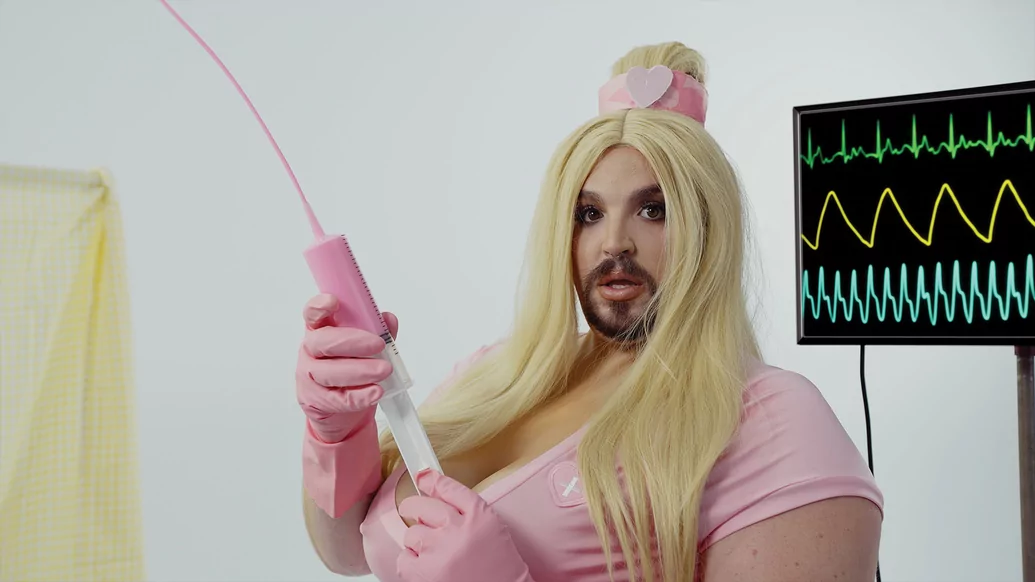
Around 2017, Wisniski learned to work in FL Studio with the guidance of his fraternal mentor, Dakota. He also dove deeper into writing, drawing from queer rappers like Cakes da killa and Mykki Blanco, as well as seminal acts like Missy Elliott (“We had ‘The Cookbook’ on all the time when I was in third grade”) and Nicki Minaj (“I’m such a barb”) for inspo. After watching an unusual performance from an Oregon-based emcee and producer, he developed a fresh understanding of how to tackle the craft.
“I didn’t realize this existed until I saw it for myself, but I saw Lafa Taylor do a gibberish rap battle,” he explains enthusiastically. “The flow is there first. You feel how you’re going to rap it, but it comes out literally as gibberish.” He takes a second to act out the exercise, spewing out an incoherent string of babble in his hallmark, piping timbre. “That’s been my guide — hearing the gibberish that is coming out of my head and latching on to a few words that go with it,” he asserts. Each inflection point becomes an anchor, or in Wreckno’s case, the perfect placement for a well-spun burn or work of innuendo.
“Believe me, there was a real moment when I thought for sure I was going to be a popstar, and I do sing, but I felt like I had so much sass, and I started writing raps before I ever started writing songs,” he explains of shaping his style. “When it comes to sassiness and the bad bitch energy I like to portray, I think rapping really gets that point across a little bit easier. There’s a lot more ability to be tongue-in-cheek, and you can write jokes in raps, you know?” Plus, their punchlines were hitting, and slowly paying off.
In 2018, Wisniski scored occasional bookings at dingy local bars and out-of-town haunts. He got a taste of what it felt like to perform on real stages, even if it was just for a few homies, and even if he was typically doing it while wearing a flannel shirt and blue jeans — the somewhat disconnected “macho” look that was their go-to back then. But more often than not, if he was at a club or music festival, he was in the audience “throwing ass” to the very acts with whom he shares lineups today. Attending Electric Forest, which takes place in Rothbury, MI about an hour down the road from his hometown, was an annual tradition. There he watched other artists live out the fantasy he imagined for himself. “If they can do it, so can you,” that inner voice perpetually chimed in.
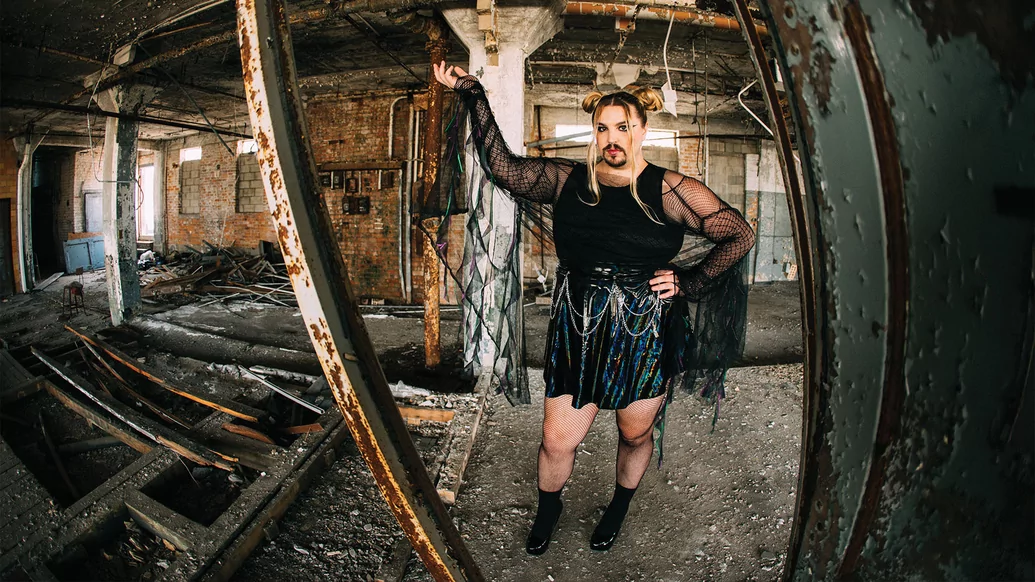
In 2019, Wisniski booked their first show in Detroit and made plans to lodge at a friend’s place in the city. At the last minute, Grant Kwiecinski — the saxophone-blasting producer known as GRiZ — staked claims on the same crash pad. “Normally if Grant was coming, no one else was allowed to stay because you don’t know how people are going to act, and I understand that,” he shares. “But, I had the chance to hang out with him unexpectedly, and I guess I did okay, because he followed me [on socials] and we talked here and there in the months after.” That chance meeting occurred in February, and Wisniski carved out a fall trip to Denver, where they reconnected in person.
“I was explaining my act to Grant, and told him I wanted to be like a ‘gay white Lizzo,’” Wreckno recalls from a conversation that took place after one of GRiZ’s sets that weekend. “At that point, I was dealing with some severe body image issues — I had gained a little weight and I was still trying so hard to be male presenting,” he waxes back, reliving the pivotal moments that led to his ratchet Cinderella- like transformation.
“He gave me the best advice I’ve probably ever received from anybody regarding image or how to shape a performance as a person in music. He said, ‘Well, you know, if you want to be that, you have to actually be that.’” Wisniski was shook — in a good way.
The “gay, white Lizzo” comment obviously struck a chord in GRiZ’s mind, too, because not long after, Wisniski received a proposition from his longtime hero that would ultimately send his rise into hyperdrive. “‘Medusa’ really changed my whole life,” Wreckno says of the queer duo’s 2020 Pride-timed cut that whipped through the airwaves, injecting flaming-hot joy into an otherwise joyless pandemic summer. “All it takes is that one co-sign from someone who really believes in you that’s at the top.”
“Hold up it’s the anthem Put your fuckin’ hands up Smilin’ cuz I’m young, rich, gay, and I’m handsome...”
And with that rapid fire intro and a funky, freestyle breakdown to boot, Wreckno entered the chat. Bassheads everywhere were hungry to know more about the rhyme-spitting newcomer who’d earned GRiZ’s nod of approval. Plus, Wisniski clocked another true badge of success: They had haters.
"I’m not going to lie, I took a lot of shit that first year of doing shows,” he says in a tone that rings less annoyed than perhaps it should. “People would say things like, ‘He only sells tickets because girls buy them’, or ‘He only gets coverage because he’s gay’, and I’d hear all of this and it really pissed me off because I know I’m worthy as a performer, but when you’re breaking into this scene that’s full of elitists, or if you’re a little too mainstream, or you’re trying a little too hard, then it’s easy for others to shut your shit down.”
Fortunately, Wisniski was already a pro at tuning out the noise. Besides, with every hater came even more fans. “Once that happened with Grant and it was a quality song with me rapping, it blew people’s minds. It blew my mind. It really changed my whole life,” he says with palpable gratitude. His social following started to explode, and dubstep legends like Liquid Stranger slid into his DMs. Wisniski was clearly doing something right.
Yet something still felt... off. As bookings picked up at the top of hot vaxx summer, Wreckno remained in the throes of their “flannel dad-hat era” (check the cover art for ‘Medusa,’ and you’ll see), attempting to find their voice in a bass scene that — despite all of its kandi-coated promises of PLUR and acceptance — remained undeniably dominated by cis, white, hetero men.
“There was a point last December when I decided, I’m just gonna buy some skirts — I’m gonna see how I feel on stage,” Wisniski explains. “After the first show that I changed the way I presented myself clothing-wise, I remember getting off stage — I was in a black skirt, black thigh highs, and a little crop top, and I just remember feeling, like, ‘oh my god, I actually feel like myself.’”
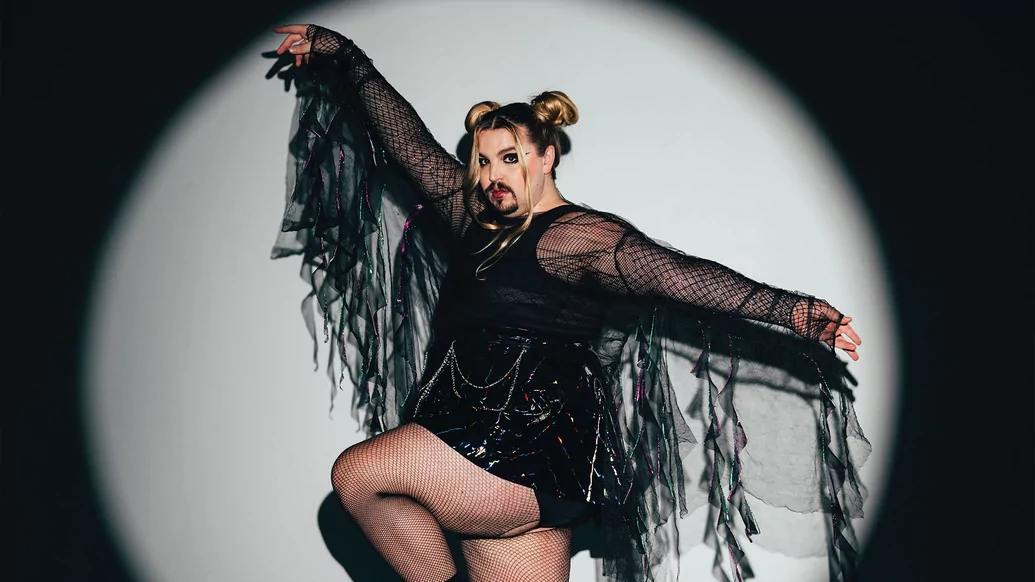
“I remember getting off stage — I was in a black skirt, black thigh highs, and a little crop top, and I just remember feeling like, ‘Oh my god, I actually feel like myself.’”
Now, the dad hats are off (burned, probably), and Wreckno is living their truth inside and out. Catching a set from them is a truly singular experience, with full choreography, glistening dancers and technicolor visuals of the bearded performer twerking as though their life depends on it. But what shines through most is the unapologetic queerness — each show is an act of validation, not only for Wisniski, but for the kids in the crowd who may be juggling their own insecurities.
“There are probably people out there who are taking in [my performances] and thinking, ‘Okay, I can actually do whatever I want,’ and that makes me really happy, because that’s the main reason I do what I do,” Wisniski says calmly, recognizing how something that comes so naturally to him, could mean the world to someone else.
Life is “giving surreal” right now. “The ‘pinch me’ moments haven’t stopped,” Wreckno reiterates, and if the skirt-flaunting diva’s scorching 2022 run is any indicator, they won’t anytime soon. For starters, the release schedule has been relentless. In April, Wreckno teamed up with fellow Michigan-based producer, Super Future, and his aforementioned teenage idol, the pop vocalist DEV. Their minimal bass –meets–hip- hop stunner, ‘Everything,’ arrived via Four Loko Records just ahead of festival season with much fanfare.
“This was my first time working with a pop star songwriter and I really wanted to, as the kids say, ‘put my whole pussy in it,’” he says of yet another full-circle moment that’s come to light. DEV joined Wreckno onstage during Lollapalooza to perform the single, along with her 2010 breakout hit ‘Like A G6’ (the brainstorm for the amateur grooves he and Dakota dreamed up together in their childhood home more than a decade ago.)
Again, those long-gone family collabs in reference won’t see the light of day, but a few new ones sure have. On June 29th, Wreckno dropped ‘The Fantasy’ — a four-track, independently released EP, that demonstrates a vast evolution in their sound. Its four-on-the-floor beats and airy melodies contrast starkly with that of their wobbly predecessors, without losing that classic flippant zing.
“I know when to sprinkle in the crazy shit so the kids will have their fun, but as an artist, what I really enjoy is beautiful music. I love house music. ‘The Fantasy’ is like my love letter to everything all at once,” Wisniski shares of the Pride-themed collection, which he unveiled for the first time during his Electric Forest debut with Dakota and his mom in tow (make it a point to watch Homecoming Queen: An Electric Forest Success Story, a wholesome, teary-eyed mini- documentary recounting Wreckno’s triumphant return to the musical oasis of his youth.)
The multifaceted extended player takes off with ‘DELUSIONAL’ a pumping 124BPM heater that reclaims its namesake — the only thing crazier than Wreckno’s lift-off is the alternate reality where they’re slaving away in a cubicle. ‘Top Billin’ with Kizer goes hard — it’s a cheeky ditty about scoring the biggest font on the flyer and pocketing the fat stash that comes with it. The second half of the listen is a family affair, with 7UDO listed as the collaborator on the ultimate productions.
‘Strange Thoughts (Interlude)’ marks the vibe shift with its hazy, dreamlike filters, and vocals performed in part by their mother. Finally the EP closes out with the title track, a mesmerising deep house-leaning melter dripping with dynamic vocals and warm, rich percussion. ‘Strange Thoughts’ and ‘The Fantasy’ mark the first time that 7UDO’s name is forward-facing in the Wreckno project. On previous works (‘Honey Drip’ for example), Dakota insisted on being listed only in the producer credits.
“He finally said, ‘Okay, I like this music, this lines up with what I see for myself,’ and now we have something out there together. That’s been my goal this whole time. I’m his biggest fan and biggest supporter,” Wisniski shares with an air of brotherly love. “I’ve always been thinking, ‘how can I get what I’m hearing at home out to the masses, or at least out to the people that are listening to what I’m putting out?’ So, that’s been a big accomplishment.”
In August, Wreckno and 7UDO appeared together on CloZee’s Odyzey imprint with ‘Control,’ a sexy mid-tempo jam with churning R&B-inspired colours. It’s a surefire standout on the label’s ‘Musique Vol. 2’ compilation.
“The most meaningful part [of my career] so far has been making my family proud,” Wisniski says in summation. “When you have a batshit crazy dream, and you are from such a small place, it just looks that much crazier. So, these are the most gratifying moments for me.”
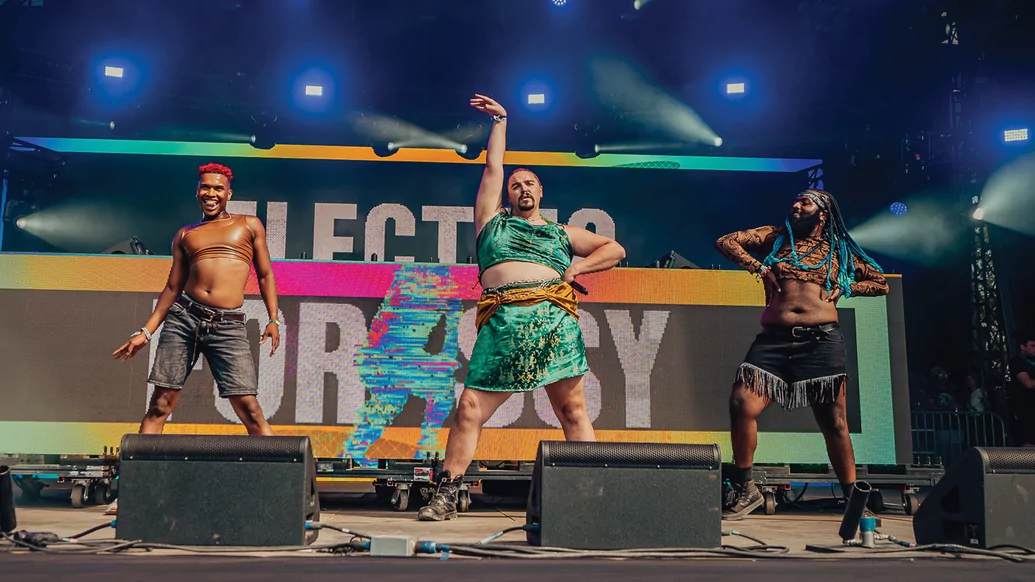
Wreckno is living out ‘The Fantasy’ on tour right now. They’ll be stopping off in music-forward markets like Atlanta, New Orleans, Nashville, and San Francisco this fall, before wrapping up at Holy Ship! Wrecked in Mexico ahead of the holidays. While stints at home are limited, Wisniski intends to practice self-care, and spend time with Arlee, the person in his life who he says made him finally feel comfortable in his own skin.
“I feel like things have been so crazy with shows that I’ve put my mental health on autopilot a little bit, I get into survival mode almost,” he shares, admitting days away can be hard because there’s so much to love at home. “I spent a lot of time without having a really solidified place,” he explains, taking in just how far he’s come. “I was always living in friends’ places or having roommate shifts, and now we have our safe space. It really helps me a lot.”
For those who don’t have that, Wisniski hopes their shows can provide a place of refuge. Wreckno’s rider requires that venues hang up posters reading: “This is A Safe Space, We do not tolerate: Racism, Sexism, Anti-Semitism, Ableism, Homophobia, Transphobia, Xenophobia, Body Shaming.” In other words: don’t be an asshole.
Wisniski always hoped to foster sanctuaries of self- celebration, for music lovers, of course, but especially for the queer creatives who rarely saw themselves represented on main stages and marquees. Today, their platform achieves both of those things.
“The Wreckno project is determined to uplift other queer artists of all gender identities — from the people that we’re working with in mastering, to the dancers that we have on stage — we want to support the people around us who share the same goals we do, and who deserve their time to shine,” Wisniski says, delivering what sounds like a polished mission statement.
Truth be told, that vision is about to pop off. “I’ve always said, I am the Pride event in my scene — regardless of where I play, I bring the Pride party,” he attests. “Next year we’re trying to show that this,” he waves his arms as though gesturing to the world, “is for every scene — not just bass music, not just EDM — everyone!” So, catch crossovers with drag queens, songs with “dope vocalists,” more filthy bass bangers alongside producers like BUKU and Of The Trees, plus next-level performance art, too — all executed with finesse, and always in heels. Because, Wreckno — just like our girl Barbie — really can do it all.

